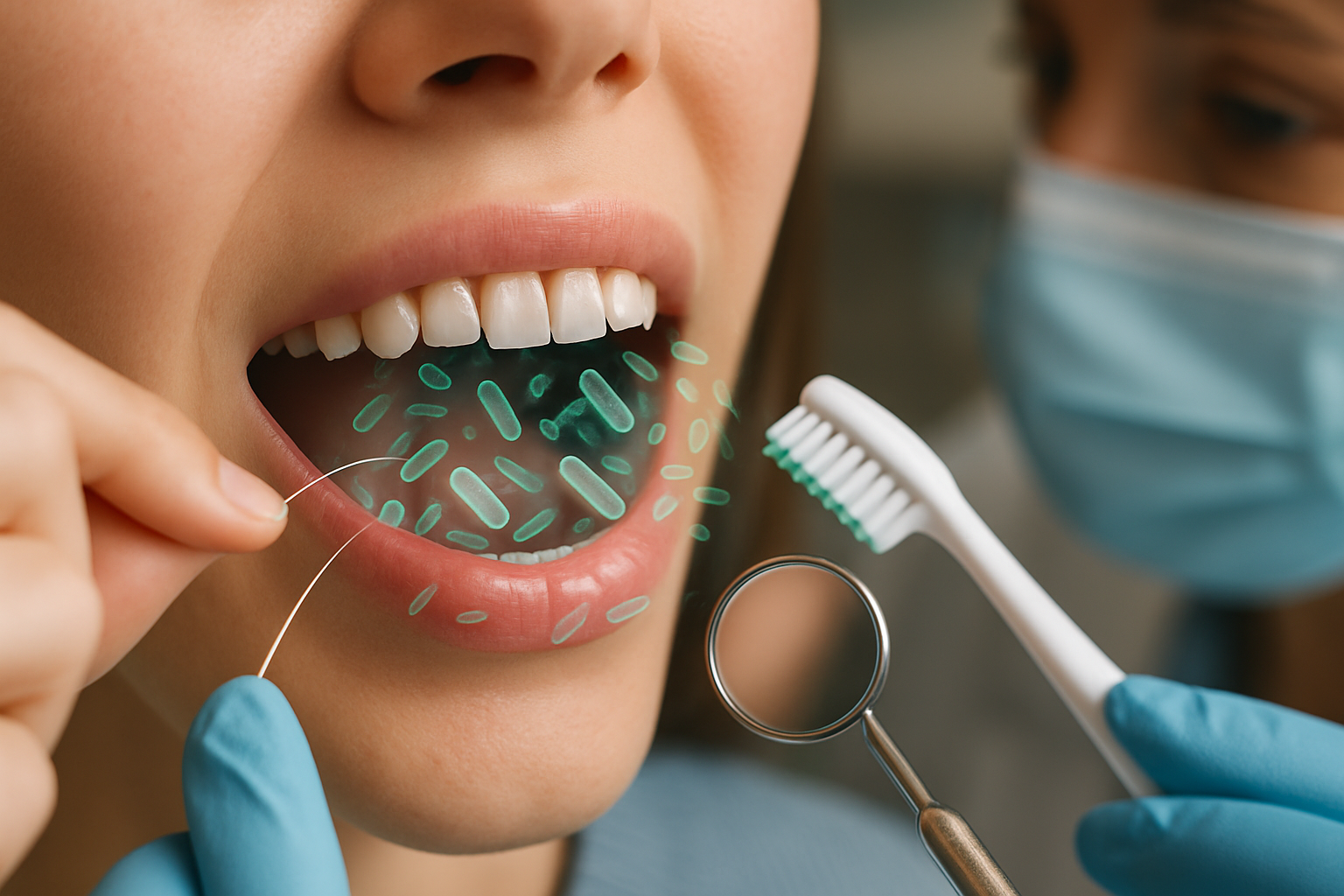How to Get Rid of Bad Breath Right Now
Bad breath affects millions of people worldwide, causing embarrassment and social anxiety in daily interactions. While many reach for mouthwash or mints as quick fixes, these temporary solutions often mask the problem rather than addressing its root causes. Understanding the underlying factors that contribute to halitosis and implementing comprehensive strategies can provide lasting freshness and renewed confidence in social situations.

Bad breath, medically known as halitosis, stems from various sources throughout your body, requiring a multifaceted approach for effective treatment. Unlike surface-level solutions, addressing halitosis involves understanding its origins and implementing targeted strategies that work from the inside out.
Bad Breath Starts in Your Gut — Fix It From Within
Digestive health plays a crucial role in breath freshness. When your gut microbiome becomes imbalanced, harmful bacteria can produce sulfur compounds that travel through your bloodstream and eventually reach your lungs, creating persistent bad breath. Poor digestion, acid reflux, and certain gut conditions like SIBO (small intestinal bacterial overgrowth) contribute significantly to halitosis.
Improving gut health involves incorporating probiotics, digestive enzymes, and fiber-rich foods into your diet. Fermented foods like yogurt, kefir, and sauerkraut help restore beneficial bacteria balance. Additionally, staying hydrated and eating smaller, more frequent meals can improve digestion and reduce the likelihood of breath-affecting digestive issues.
Stomach Issues, Poor Hygiene, Dry Mouth — We Target Them All
Multiple factors contribute to bad breath simultaneously, requiring comprehensive attention. Stomach problems like gastroesophageal reflux disease (GERD) allow stomach acids and partially digested food odors to escape through the esophagus. Poor oral hygiene allows bacteria to accumulate on teeth, gums, and tongue, producing volatile sulfur compounds.
Dry mouth, or xerostomia, significantly worsens bad breath by reducing saliva production. Saliva naturally cleanses the mouth and neutralizes acids produced by bacteria. Medications, mouth breathing, dehydration, and certain medical conditions can cause dry mouth. Addressing these issues involves thorough brushing and flossing, tongue scraping, using alcohol-free mouthwash, and maintaining proper hydration levels.
Natural Remedies + Science = Real Freshness
Combining traditional natural remedies with scientific understanding creates effective bad breath solutions. Green tea contains polyphenols that inhibit bacterial growth and neutralize sulfur compounds. Parsley and mint contain chlorophyll, which acts as a natural deodorizer. Oil pulling with coconut oil reduces harmful bacteria in the mouth through its antimicrobial properties.
Scientific research supports these natural approaches. Studies show that certain essential oils like tea tree, peppermint, and eucalyptus have antibacterial properties that reduce oral bacteria populations. Zinc supplements can neutralize sulfur compounds, while vitamin C supports gum health and reduces bacteria-promoting inflammation.
Mouthwash Isn’t Enough — You Need a Full Reset
While mouthwash provides temporary relief, it cannot address the underlying causes of persistent bad breath. Most commercial mouthwashes contain alcohol, which can actually worsen dry mouth and create a cycle of dependency. A comprehensive approach involves multiple strategies working together for lasting results.
A full reset includes establishing consistent oral hygiene routines, addressing dietary triggers, managing stress levels, and treating any underlying medical conditions. This might involve consulting with dental professionals for deep cleanings, working with healthcare providers to manage digestive issues, and making lifestyle changes that support overall oral and systemic health.
Clinically-Backed Formula — Confidence in Every Breath
Evidence-based approaches to treating bad breath focus on targeting multiple causes simultaneously. Clinical studies demonstrate that combining proper oral hygiene with targeted supplements and dietary modifications produces superior results compared to single-approach treatments. Ingredients like zinc gluconate, probiotics specific to oral health, and natural antimicrobials show promising results in clinical trials.
Research indicates that sustained-release formulations work more effectively than immediate-release products for maintaining fresh breath throughout the day. Clinical backing provides confidence that these approaches address the root causes rather than merely masking symptoms, leading to genuine improvement in breath quality and overall oral health.
| Product Type | Key Ingredients | Estimated Cost Range | Duration |
|---|---|---|---|
| Probiotic Supplements | Lactobacillus, Bifidobacterium | $25-60 AUD/month | 2-3 months |
| Zinc Supplements | Zinc Gluconate | $15-30 AUD/month | 1-2 months |
| Natural Mouthwash | Essential Oils, Xylitol | $8-20 AUD/bottle | 3-4 weeks |
| Professional Cleaning | Deep Scaling | $150-300 AUD | Every 6 months |
Prices, rates, or cost estimates mentioned in this article are based on the latest available information but may change over time. Independent research is advised before making financial decisions.
Treating bad breath effectively requires patience and consistency. Most people notice improvements within 2-4 weeks of implementing comprehensive strategies, though some may see results sooner. The key lies in addressing multiple contributing factors simultaneously rather than relying on quick fixes that provide only temporary relief.
This article is for informational purposes only and should not be considered medical advice. Please consult a qualified healthcare professional for personalized guidance and treatment.




